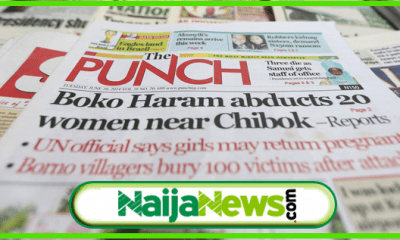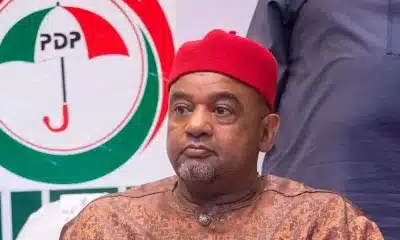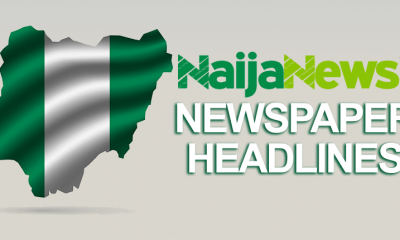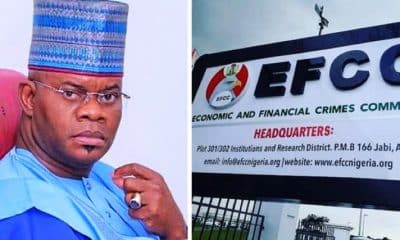Nigeria News
Here Is What EU, US Said About 2019 Elections In Nigeria
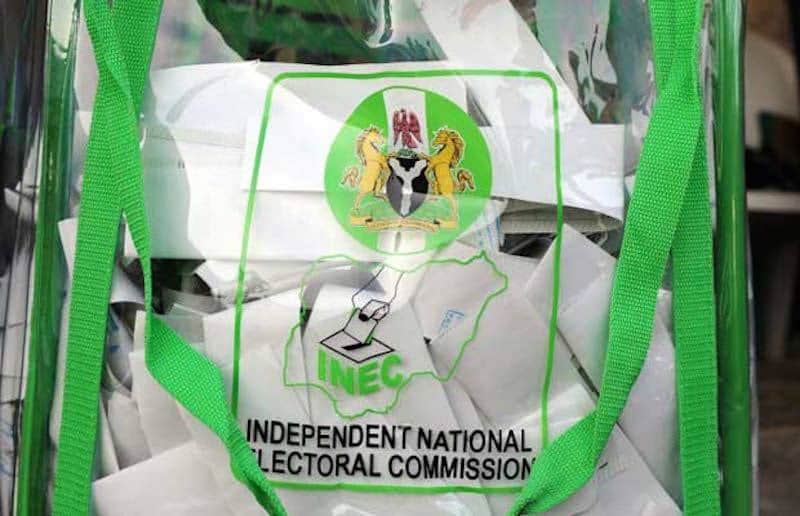
EU, US Recommends Improved Electoral Process
The International Republican Institute (IRI) and National Democratic Institute (NDI) have regretted what they described as ‘the lack of progress in election administration’ and conduct of political parties in Nigeria.
Following its observation in the just concluded general elections, the United States agencies noted that the Nigerian government had not given enough space to the 35 percent affirmative principle captured in the 2006 National Gender Policy, adding that the National Assembly had continually bungled the opportunity to adopt legislation that supports greater participation of women in politics.
Addressing a press conference yesterday in Abuja, the African Regional Director of IRI, John Tomaszewski, expressed the disappointment of his delegation at the conduct of the polls, stating that opinions of Nigerians on the entire exercise pointed to retrogression, as the country had not made any significant progress since the 2015 outing.
According to him, the secrecy of the ballot was not properly protected in polling units across the country, adding that insufficient physical space within some of the units meant citizens marked and cast their ballots in very close proximity to party agents, polling and security officials as well as the public.
He called for a national conversation on progress made and the falls that must be tackled to further strengthen the credibility of the electoral process and safeguard the nation’s democracy.
The director urged the Federal Government to expeditiously implement the reports of the Justice Mohammed Uwais and Senator Ken Nnamani panels raised in 2008 and 2017 to allow for the establishment of relevant institutions to oversee political parties and prosecute electoral offences and other responsibilities that currently impede Independent National Electoral Commission’s (INEC) focus on election management.
He further called on the National Assembly to prioritize legislation that would promote women’s leadership and political participation, notably by the adoption of the Gender and Equal Opportunities Bill.
Similarly, the European Union Election Observation Mission (EUEOM) to Nigeria has sought reforms after this year’s polls.
The Chief Observer, Maria Arena, made the appeal during the second presentation of their preliminary report yesterday in Abuja, adding that they are in agreement with the electoral reforms being championed by civil society organizations in the country.
She stressed the need to retool the electoral body and other key stakeholders before the next general elections in 2023.
According to her, one of their recommendations would be to encourage the nation to revisit election guidelines and regulations.
Besides, the African Centre for Leadership, Strategy & Development (LSD) has said the low turnout of voters during the governorship and house of assembly elections was an indication that the citizens were losing faith in the entire process.
The group made the submission yesterday in its interim report on the exercise signed by acting Executive Director, Monday Osasah, and Programme Manager, Tive Denedo, in Abuja.
According to them, INEC must improve the credibility and outcome of elections to restore the confidence of Nigerians in the system.
They urged the commission to come up with a bill through the presidency to address the menace of vote buying and equally review its criteria for registration of political parties to ensure less number in subsequent elections.



